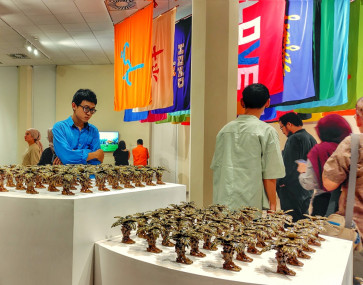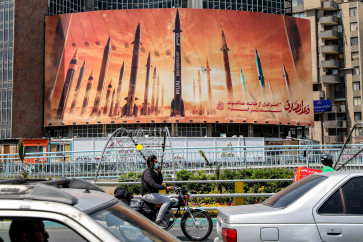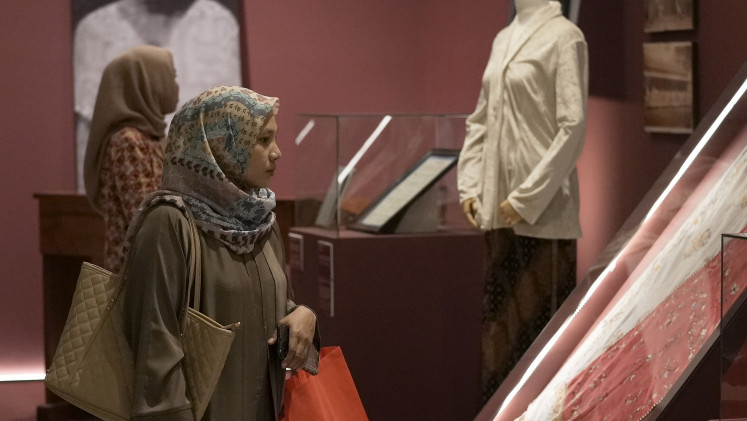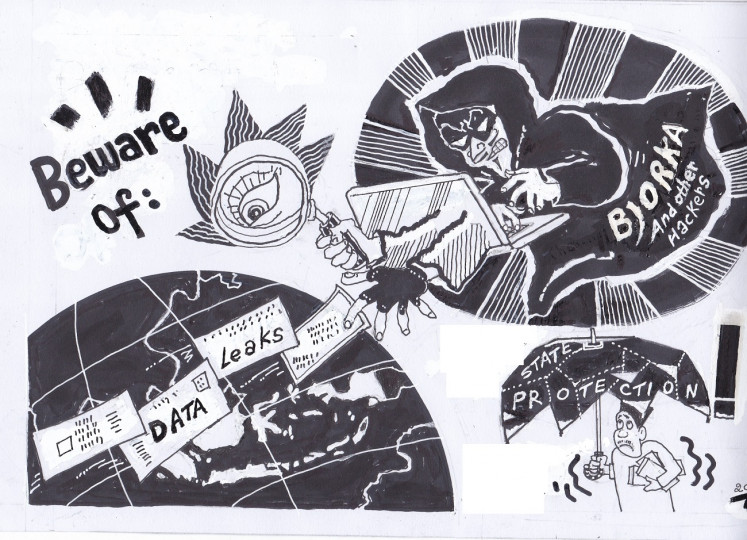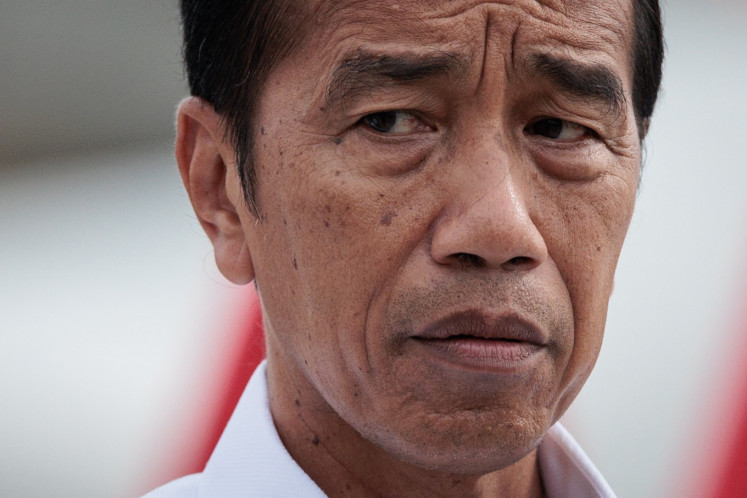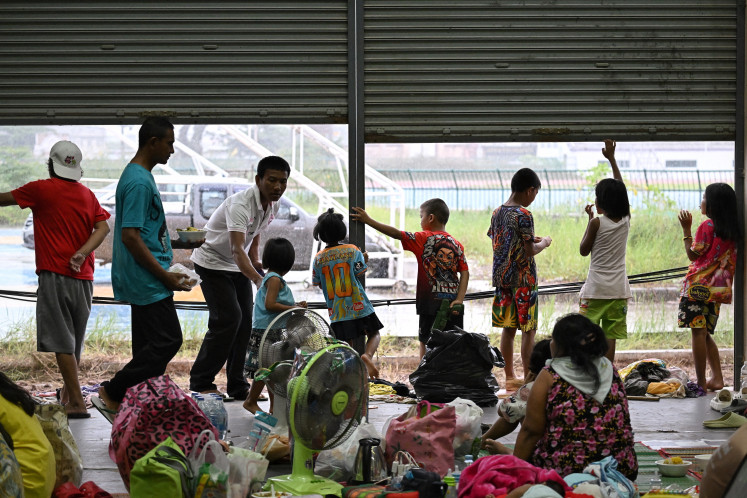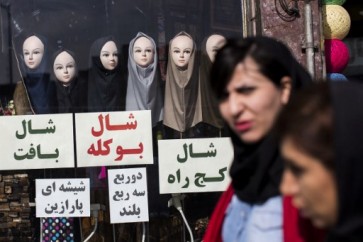Popular Reads
Top Results
Can't find what you're looking for?
View all search resultsPopular Reads
Top Results
Can't find what you're looking for?
View all search resultsLesson from women and revolution in Iran
The way Iranian women are involved in the protests is both similar and in contrast to recent events in Indonesia.
Change text size
Gift Premium Articles
to Anyone
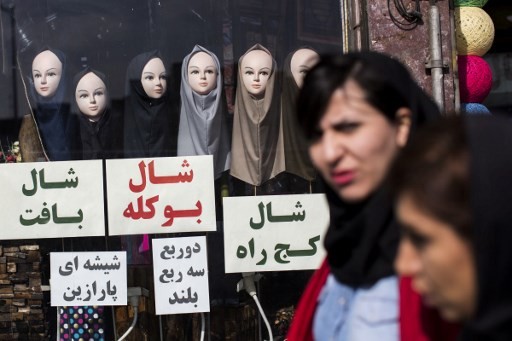 In this file photo taken on February 24, 2016 Iranian women walk past a shop displaying scarves on mannequins in the downtown district of the capital Tehran. Tehran police have arrested 29 women for appearing in public without a headscarf as protests against the dress code in force since the Islamic revolution of 1979 intensify, Iranian media reported on February 2.
Morality police once rigidly enforced the rules, but are a much less common sight since President Hassan Rouhani came to power in 2013, promising greater civil liberties.
(AFP/BEHROUZ MEHRI)
In this file photo taken on February 24, 2016 Iranian women walk past a shop displaying scarves on mannequins in the downtown district of the capital Tehran. Tehran police have arrested 29 women for appearing in public without a headscarf as protests against the dress code in force since the Islamic revolution of 1979 intensify, Iranian media reported on February 2.
Morality police once rigidly enforced the rules, but are a much less common sight since President Hassan Rouhani came to power in 2013, promising greater civil liberties.
(AFP/BEHROUZ MEHRI)
I
n recent weeks, the international media has been reporting on the waves of antigovernment protests in several cities and provinces across Iran. Among them, women have staged their own rallies, seeking more freedom and for their rights as citizens to be equal to those of men.
While women wearing the fullbody chador joined demonstrations for equality, some women removed their veils in public to protest against the compulsory headscarf, which became law in 1979. The participants in chadors also expressed their belief that the decision to cover should be a woman’s individual right and no one, including the state, must enforce it. In essence, these women are protesting conservative clerics who regulate women’s bodies based on their interpretation of faith.
The way Iranian women are involved in the protests is both similar and in contrast to recent events in Indonesia.
Twenty years ago, Indonesian women activists of different ideological backgrounds marched in Jakarta, leading protests against the corrupt and authoritarian government, which led to the reformasi movement that overthrew Soeharto.
Now, in a democratic Indonesia, we see fascinating developments in women’s movements and its campaign for equality, especially within Muslim groups. It employs various religious themes and insights in its campaigns. Islam is a key part of how it conceives the formula that best promotes women’s interests.
Last year, hundreds of Indonesian Muslim women gathered at the first women’s ulema congress in the Muslim world. Various socio-economic and religious problems that continue to hinder women from being treated equally as citizens were discussed. The participating female ulema and activists, with strong backgrounds in religious studies, believe basic rights for women are guaranteed in Islam.
However from their analysis that Islam is encroaching into public affairs based on patriarchal norms, they insist that at least for Muslims, an Islamic framework based on equality and inclusivity is the only way to fight discrimination in both the public and private domain.

